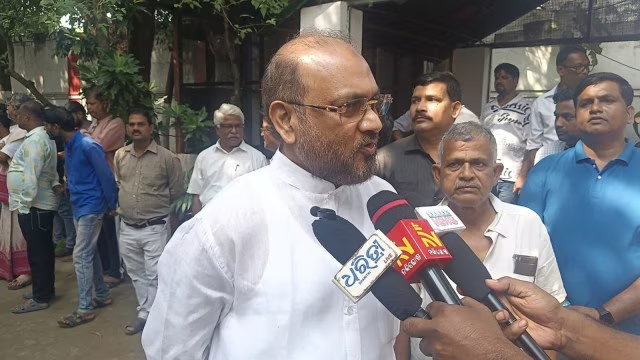The government wants to use the Digital Personal Data Protection Act, 2023 (DPDP Act) to curtail access to public information on the pretext of safeguarding privacy, Leader of Opposition in Lok Sabha Rahul Gandhi said on Tuesday (March 25).

Congress leader Jairam Ramesh wrote to Minister for Electronics and Information Technology (MeitY) Ashwini Vaishnaw on March 23 demanding the repeal of Section 44(3) of the DPDP Act, which he said would “destroy” the RTI Act.
RTI activists Aruna Roy, Nikhil Dey, Prashant Bhushan, and Anjali Bhardwaj addressed a press conference last week to oppose the impending change to the RTI Act in line with the DPDP Act.
Section 44(3) of DPDP Act
The DPDP Act received the President’s assent on August 11, 2023, and will come into force after the Rules under the Act are notified. In January, Vaishnaw’s ministry invited feedback and comments on the draft Digital Personal Data Protection Rules, 2025. The window for comments on the draft Rules closed on February 18.
The DPDP Act is intended to “provide for the processing of digital personal data in a manner that recognises both the right of individuals to protect their personal data and the need to process such personal data for lawful purposes and for matters connected therewith or incidental thereto”.
Section 44(3) of the DPDP Act mentions a change that will be made in Section 8(1)(j) of the RTI Act. This change, RTI activists say, will greatly reduce the amount of information that government agencies are obligated to disclose under the 2005 Act.
Story continues below this ad
Section 8(1)(j) of RTI Act
This section states: “…There shall be no obligation to give any citizen…information which relates to personal information the disclosure of which has no relationship to any public activity or interest, or which would cause unwarranted invasion of the privacy of the individual unless the Central Public Information Officer or the State Public Information Officer or the appellate authority…is satisfied that the larger public interest justifies the disclosure of such information.”
Section 44(3) of the DPDP Act shortens this clause in the RTI Act to broaden the scope for denying information. It says: “In section 8 of the Right to Information Act, 2005, in sub-section (1), for clause (j), the following clause shall be substituted, namely: — “(j) information which relates to personal information”.
Why the change matters
The potential conflict between a citizen’s right to information and the privacy of the subject of that information where the greater public interest is involved, has been discussed widely.
Over the years, several orders of the Central Information Commission and state Information Commissions on the disclosure or denial of information have been based on the interpretation of Section 8(1)(j) of the RTI Act.
Story continues below this ad
During the discussions that preceded the passage of the RTI Bill by Parliament, the Bill was examined by a Group of Ministers headed by Pranab Mukherjee. Section 8(1) of the Bill was about “Exemption from disclosure of information”, and sub-sections 8(1)(a) to 8(1)(j) spelt out those exemptions.
A general rider to the exemptions in Section 8(1) says that any information “which cannot be denied to the Parliament or a State Legislature shall not be denied to any person”.
Activists point out that a lot of personal information about public servants such as their assets and liabilities are published because it is seen to serve a public purpose. The blanket exemption now granted to all “information which relates to personal information” could be used to deny the public their right to know, they say.








































